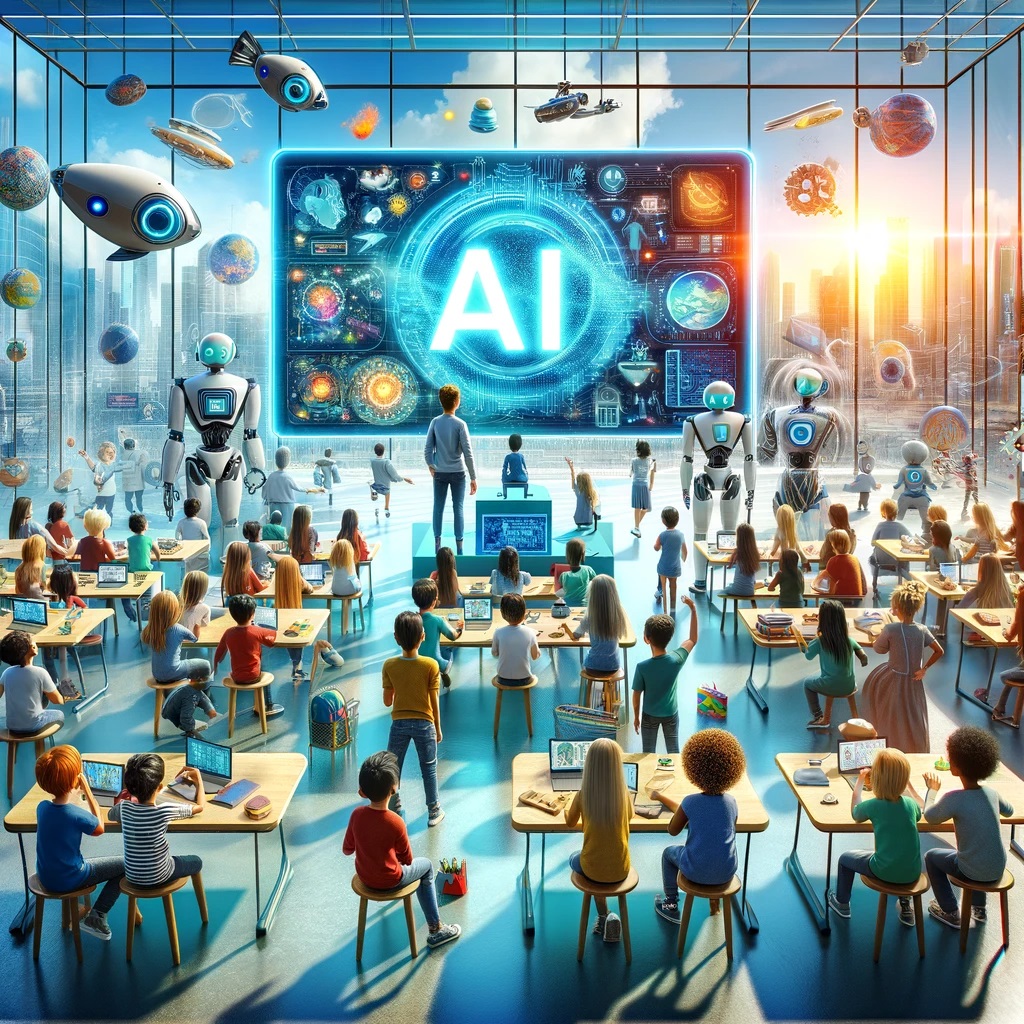
Future of AI in education
AI in Education:
The future of AI in education is currently a subject of great interest and speculation. The realm of education is undergoing a significant transformation, primarily attributed to the remarkable rise of Artificial Intelligence (AI). Over the past few years, AI has emerged as a transformative force in education, fundamentally altering the way we acquire knowledge and interact with educational materials. By redefining traditional educational methods, AI is enhancing accessibility, personalization, and engagement for learners of all ages. This comprehensive blog will explore the ways in which Artificial Intelligence is changing the landscape of education and its influence on student achievements. Whether you are a student, educator, or simply interested in the latest developments in educational technology, this article is tailored to your interests.
What is the future of AI in education?
The trajectory of Artificial Intelligence (AI) within the realm of education is poised for significant growth and innovation. AI, a groundbreaking technology that replicates human intelligence in machines, is making extraordinary advancements in the field of education. This revolutionary technology encompasses a diverse range of applications and methodologies that not only enhance learning experiences but also elevate educational achievements. The integration of AI in education is centered on harnessing intelligent systems and cutting-edge algorithms to facilitate personalized learning, adaptive assessments, and sophisticated data analysis. Furthermore, the utilization of AI empowers educators to craft customized educational journeys that cater to the specific needs and preferences of each individual student, marking a profound shift in how we approach education and its delivery.
Personalized Learning: Empowering Students:
One of the most prominent benefits of AI in education is the ability to provide personalized learning experiences. Traditional classrooms often adopt a one-size-fits-all approach, where teaching is generalized and paced to accommodate the average student. However, every student has unique learning styles, strengths, and weaknesses. AI-powered educational tools and platforms have the capability to adapt to individual students’ needs, providing customized learning materials and adapting the curriculum to suit their pace and preferences. Hence, this personalized approach boosts students’ engagement and motivation and improves their learning outcomes.
Adaptive Assessments: Tailoring Evaluation:
Traditional assessments often struggle to capture the full potential and progress of students. However, Artificial Intelligence introduces adaptive reviews that dynamically adjust the difficulty level and content based on students’ performance. By analyzing data in real time, AI algorithms can identify knowledge gaps and offer targeted feedback to guide students towards improvement. As a result, adaptive assessments promote a deeper understanding of concepts, constantly challenging students at their own level. This not only enhances their learning experience but also enables educators to identify areas of improvement and provide timely interventions.
Intelligent Tutoring Systems: Enhancing Education:
AI has paved the way for developing intelligent tutoring systems that simulate human tutoring interactions. These systems utilize AI algorithms to provide students with personalized guidance, support, and feedback. By analyzing data from students’ interactions and responses, intelligent tutoring systems can adapt their instruction methods, remediate misconceptions, and offer additional resources when necessary. These systems act as virtual mentors, assisting students in their learning journey and fostering independent thinking and problem-solving skills.
Data Analytics: Unleashing Insights:
In the realm of education, data holds immense potential. AI-powered data analytics enable educators and institutions to extract valuable insights from vast amounts of educational data. AI algorithms can identify patterns, trends, and areas that require attention by analysing student performance data, attendance records, and engagement metrics. These insights empower educators to make data-driven decisions, tailor instructional strategies, and provide targeted student support. Additionally, AI facilitates predictive analytics, enabling early identification of students at risk of falling behind and implementing timely interventions to ensure their success.
AI-Powered Tools and Platforms:
Lastly, the rapid growth of AI in education has led to the development of numerous tools and platforms that support teaching and learning. These tools range from virtual learning environments and intelligent content recommendation systems to AI-powered language tutors and plagiarism detectors. Some notable examples include Coursera, an online learning platform that offers AI.

TASHA
mindscrafter
Pingback: Artificial Intelligence Scope in Pakistan